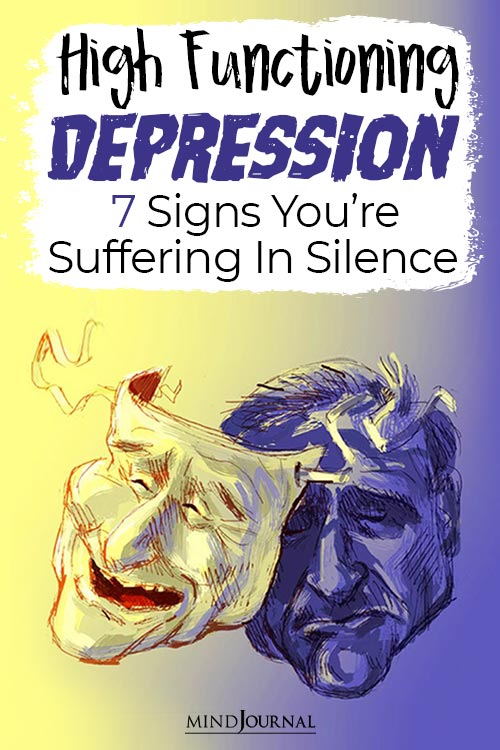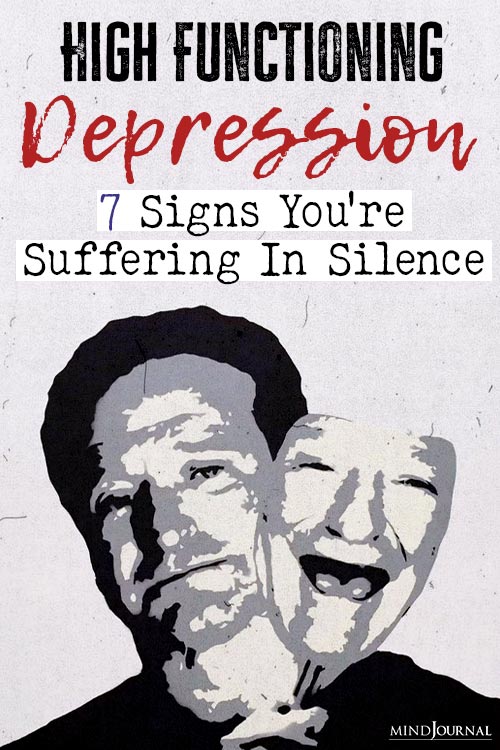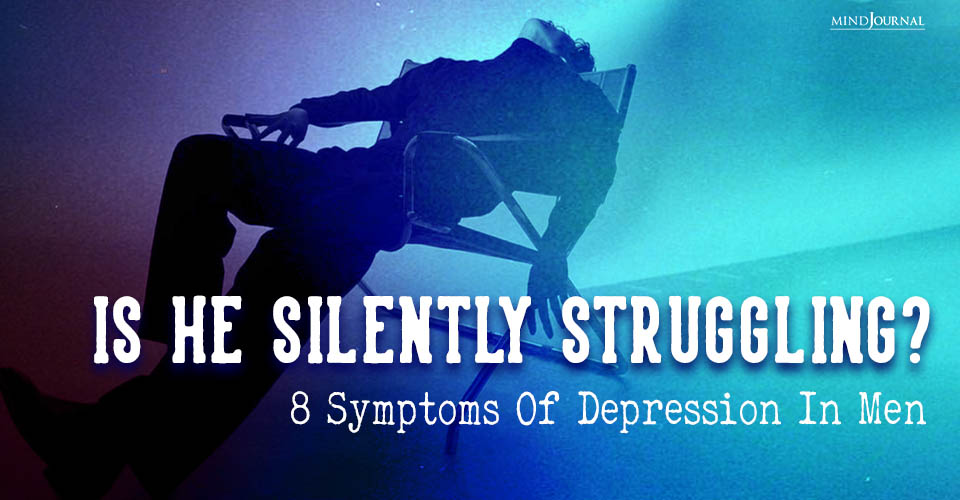You are “employee of the month” for the third time in a row. Your house is clean and organized. Your bills are paid. You are a responsible & loving partner and parent. You go to the gym and stay healthy. You volunteer to give back to your community.
People feel inspired by you.
But when all’s said and done, when no one is watching, your depression sinks in. You feel like you are always exhausted, unhappy and empty inside.
But why would you be so depressed when you have everything you need? What could you be depressed about when you have achieved everything you set out to achieve?
When it comes to depression, you don’t necessarily need a reason for how you feel.
Depression has many faces. High-functioning depression may not look like major depression, but it can be as damaging and devastating.
What is high-functioning depression?
While high-functioning depression is not an official diagnosis, many psychologists believe it is a milder form of Persistent Depressive Disorder (PDD) or Dysthymia.
High-functioning depression is a less severe, but long-lasting form of depression where someone’s suffering is invisible. Although you may meet your daily responsibilities, socialize regularly and appear healthy, internally you struggle with sadness, low moods, anxiety, self-doubt, guilt, worry and insecurities.
High-functioning depression eats you alive
While persistent depressive disorder is milder than major depression, it is often more harmful than other forms of depression as you seem to get through life just fine.
But no matter how organized, perfect and in control you may seem outside, you feel terrible inside.
Due to its high functioning nature, you may even avoid seeking medical help which can further worsen your condition.
Recognizing high-functioning depression is harder than detecting major depression as people with Dysthymia are seemingly go-getters and high achievers who appear to be doing fine on the outside. However, inside they may be breaking apart.
Here are 7 signs of high-functioning depression
1. You are always busy
Do you run from one task to another? Are you constantly chasing new goals?
From deadlines, responsibilities, hobbies and chores, you constantly keep yourself busy. You find it difficult to slow down or pause and you are unable to relax.
You have a nagging feeling of dissatisfaction even after pursuing and achieving goals all the time. You believe pausing and resting would burden you with uncomfortable thoughts and feelings that you avoid all the time.
You are a perfectionist and constantly feel the need to achieve more to fill the void inside you.
2. You criticize yourself a lot
Do you tend to be very critical with yourself? Do you believe you are not good enough?
When you have high-functioning depression, you have a negative and pessimistic mindset and you’re always focused on your weaknesses and shortcomings.
Your negative internal dialogue leads to paralyzing self-doubt and makes you believe everyone else is better than you.
Your self-criticism is a manifestation of your negative attitude, low self-esteem, and lack of self-confidence.
Read Are You Emotionally Abusing Yourself? 8 Ways To Stop
3. You feel exhausted
Do you feel exhausted even after a good night’s sleep?
Struggling with high-functioning depression can make you feel mentally, emotionally and physically tired. You feel like you persistently lack energy even when you are getting enough sleep.
Although you go through the motions everyday, it takes a lot of effort as you don’t have the energy to complete necessary tasks. You feel even more exhausted as you need to put on a happy face all day.
Your inner turmoil is leaving you exhausted and your mind just screams out “I can’t do this anymore!”
4. You overthink all the time
Do you think and worry too much about the smallest things and break down? Do you have the same thoughts repeatedly?
High-functioning depression makes you feel frustrated, uncomfortable and anxious. You start overthinking about things that you didn’t care about earlier.
You turn the simplest and benign situations into complex problems inside your head. You feel like your life is breaking apart and you are about to lose it.
Read 14 Things Overthinkers Will Understand
5. You are severely anxious
Do you feel like something terrible is about to happen? Do you constantly have a sense of impending doom?
Extreme anxiety is often seen in people with high-functioning depression who feel they are in danger for no apparent reason. You believe things can quickly turn worse which causes panic attacks, chest pain, numbness, and breathing problems.
You feel like you are having a heart attack and you are unable to cope with it. Your emotional struggle makes it difficult for you to deal with everyday challenges and makes you feel anxious.
6. You feel unhappy
Sadness and hopelessness are the most common symptoms of depression. When you have high-functioning depression, you find it hard to experience happiness and joy. Things that used to be enjoyable earlier, no longer make you happy. Even when you have everything you need, you feel saddened and heavy.
To cope with this constant feeling of sadness, you may turn to unhealthy coping mechanisms like drugs or alcohol. However, these make you feel worse and you believe that you will never be happy again.
7. You are moody
Do you feel cranky and irritated quite often? Do you get angry at the slightest discomfort? Are angry outbursts becoming more frequent?
High-functioning depression can cause mood swings. One moment you may feel calm or bored, then instantly you may feel unhappy or angry.
You can have extreme reactions to insignificant problems and snap easily and unexpectedly. You become bothered and annoyed by things that never mattered before and find it hard to let go.
Can you relate to most of these signs of high-functioning depression?
While you may be able to hold your job, pursue education, meet your family responsibilities and achieve goals, high-functioning depression makes you feel like you don’t have the energy to go on any longer.
If you can identify these signs of high-functioning depression in yourself or someone you know, make sure to seek medical help immediately.
Depression is treatable and recognizing the symptoms is the first step to recovery.
How do you cope with your depression? Let us know in the comments below.















Leave a Reply
You must be logged in to post a comment.